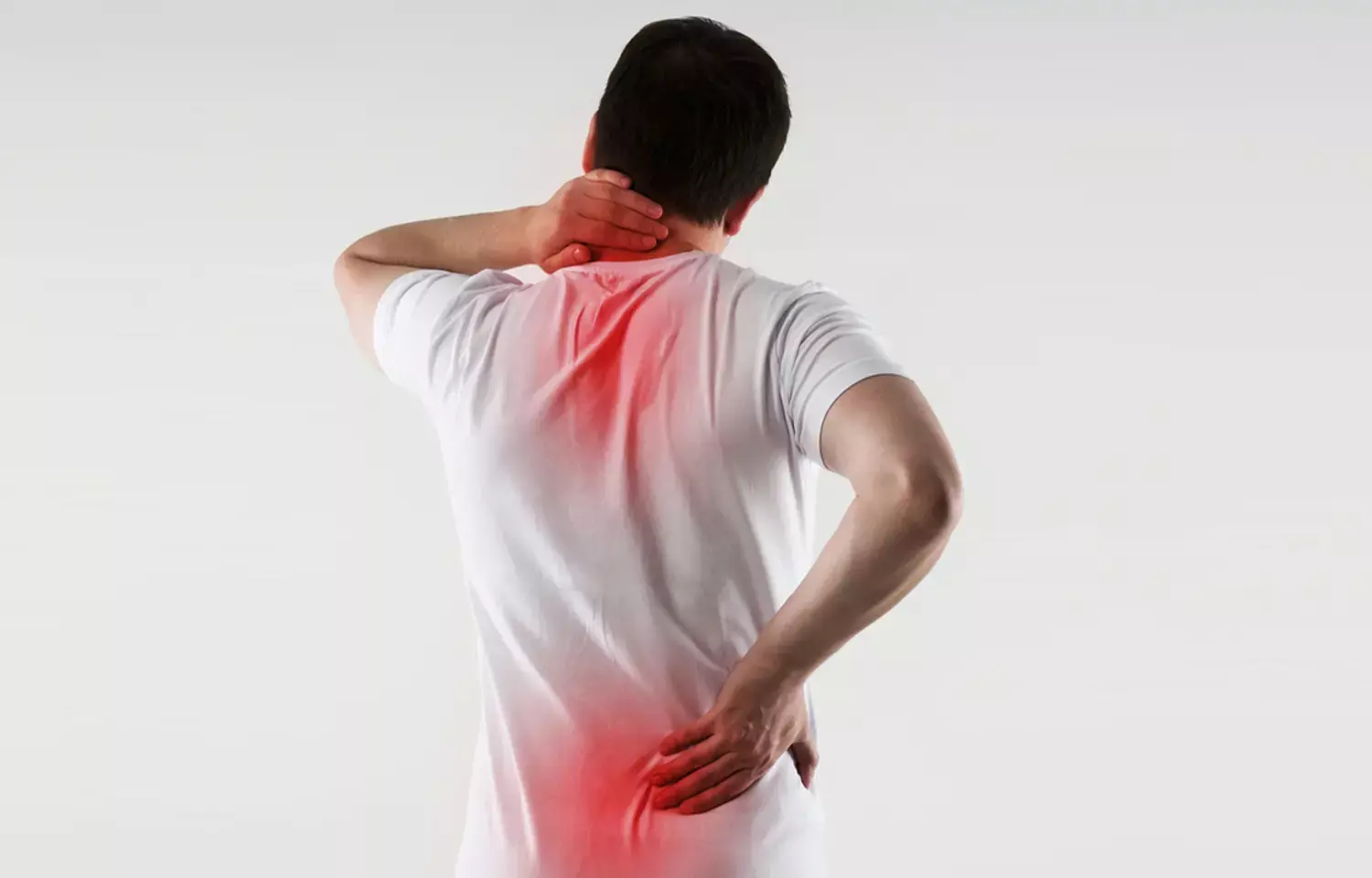- Home
- Medical news & Guidelines
- Anesthesiology
- Cardiology and CTVS
- Critical Care
- Dentistry
- Dermatology
- Diabetes and Endocrinology
- ENT
- Gastroenterology
- Medicine
- Nephrology
- Neurology
- Obstretics-Gynaecology
- Oncology
- Ophthalmology
- Orthopaedics
- Pediatrics-Neonatology
- Psychiatry
- Pulmonology
- Radiology
- Surgery
- Urology
- Laboratory Medicine
- Diet
- Nursing
- Paramedical
- Physiotherapy
- Health news
- Fact Check
- Bone Health Fact Check
- Brain Health Fact Check
- Cancer Related Fact Check
- Child Care Fact Check
- Dental and oral health fact check
- Diabetes and metabolic health fact check
- Diet and Nutrition Fact Check
- Eye and ENT Care Fact Check
- Fitness fact check
- Gut health fact check
- Heart health fact check
- Kidney health fact check
- Medical education fact check
- Men's health fact check
- Respiratory fact check
- Skin and hair care fact check
- Vaccine and Immunization fact check
- Women's health fact check
- AYUSH
- State News
- Andaman and Nicobar Islands
- Andhra Pradesh
- Arunachal Pradesh
- Assam
- Bihar
- Chandigarh
- Chattisgarh
- Dadra and Nagar Haveli
- Daman and Diu
- Delhi
- Goa
- Gujarat
- Haryana
- Himachal Pradesh
- Jammu & Kashmir
- Jharkhand
- Karnataka
- Kerala
- Ladakh
- Lakshadweep
- Madhya Pradesh
- Maharashtra
- Manipur
- Meghalaya
- Mizoram
- Nagaland
- Odisha
- Puducherry
- Punjab
- Rajasthan
- Sikkim
- Tamil Nadu
- Telangana
- Tripura
- Uttar Pradesh
- Uttrakhand
- West Bengal
- Medical Education
- Industry
Widespread pain tied to increased risk of dementia and stroke: Study

The findings provide convincing evidence that [widespread pain] may be a risk factor for all-cause dementia, [Alzheimer's disease], and stroke.
USA: People with widespread pain are at an increased risk of all types of dementia, including Alzheimer's disease, and stroke according to a study published online in the journal Regional Anesthesia & Pain Medicine. The findings are independent of age, sex, lifestyle, and general health.
Widespread pain is a common subtype of chronic pain that may reflect musculoskeletal disorders. Several studies suggest that it can reliably predict cancer, peripheral arterial disease, and cardiovascular disease, and it has been linked to a heightened risk of death.
While chronic pain may be an early indicator of cognitive decline, it's not clear if widespread pain might also be linked to a heightened risk of dementia and stroke.
To try and find out, the researchers drew on data from 2464 second-generation participants of the US long-term, multigenerational, community-based Framingham Heart Study, known as the Offspring Study.
Participants were given a comprehensive check-up, which included a physical exam, lab tests, and detailed pain assessments between 1990 and 1994.
They were divided into three pain groups: widespread pain—defined according to American College of Rheumatology criteria as pain above and below the waist, on both sides of the body, the skull, backbone, and ribs (347 people; 14%); other pain—classified as pain in one or more joint(s) only or no pain in any joints (2117 people in total).
Information on potentially influential factors was also collected. This included evidence of high blood pressure and diabetes; weight (BMI); lifestyle (smoking, drinking, diet, physical activity levels); employment status; depression scores; history of pain medication; income, marital status and educational attainment.
Participants were then continuously monitored for the beginnings of cognitive decline and clinical dementia (average of 10 years) or a first stroke (average of 15 years).
During the monitoring period, 188 people were diagnosed with some form of dementia, 50 (27%) of whom had widespread pain and 138 (73%) of whom didn't. And 139 people had a stroke, 31 (22%) of whom had widespread pain and 108 (78%) of whom didn't.
After taking account of potentially influential factors, people with widespread pain were 43% more likely to have any type of dementia, 47% more likely to have Alzheimer's disease, and 29% more likely to have a stroke than those without widespread pain.
When only the over 65s were included, these risks were comparable: 39% heightened risk of all types of dementia; 48% heightened risk of Alzheimer's disease; and 54% heightened risk of stroke.
This is an observational study, and as such, can't establish cause. The actual numbers of dementia and stroke cases were small, while the relationship between pain and cognitive decline is likely to be multifactorial, the researchers caution.
Nevertheless, they conclude: "These findings provide convincing evidence that [widespread pain] may be a risk factor for all-cause dementia, [Alzheimer's disease], and stroke. This increased risk is independent of age, sex, multiple sociodemographic factors, and health status and behaviors."
Widespread pain might directly affect cognitive function or it might be part of a prodromal phase of dementia and Alzheimer's disease, they suggest by way of an explanation for their findings, adding that further larger studies are needed to explore these possibilities.
Reference:
The study titled, "Association between widespread pain and dementia, Alzheimer's disease and stroke: a cohort study from the Framingham Heart Study," is published in the journal Regional Anesthesia & Pain Medicine.
DOI: https://rapm.bmj.com/lookup/doi/10.1136/rapm-2021-10273
Hina Zahid Joined Medical Dialogue in 2017 with a passion to work as a Reporter. She coordinates with various national and international journals and association and covers all the stories related to Medical guidelines, Medical Journals, rare medical surgeries as well as all the updates in the medical field. Email: editorial@medicaldialogues.in. Contact no. 011-43720751
Dr Kamal Kant Kohli-MBBS, DTCD- a chest specialist with more than 30 years of practice and a flair for writing clinical articles, Dr Kamal Kant Kohli joined Medical Dialogues as a Chief Editor of Medical News. Besides writing articles, as an editor, he proofreads and verifies all the medical content published on Medical Dialogues including those coming from journals, studies,medical conferences,guidelines etc. Email: drkohli@medicaldialogues.in. Contact no. 011-43720751


